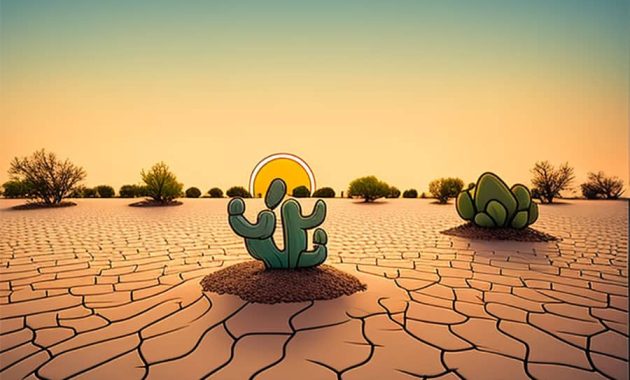Climate Change Quiz Questions and Answers
Take this comprehensive Climate Change Quiz and find out how much you know about the global warming crisis and its impact on our planet. Start taking action today.
Climate change is one of the most pressing issues facing our planet today. With the global temperature rising, it’s crucial for individuals to understand the cause and impact of this crisis.
Our Climate Change Quiz will test your knowledge on how much you know about climate change or your awareness of the environmental issues related to the global warming crisis.
By taking this quiz, you’ll gain a better understanding of the climate crisis and the actions you can take to mitigate its effects.
See also Earth Day Questions and Answers.
Climate Change Quiz: Multiple Choice Questions
1. Which of the following countries is considered the smallest continent in the world?
a: Africa
b: Asia
c: America
d: Australia
2. Which of the following is considered a Greenhouse gas?
a: Water vapor
b: CO2
c: CH4
d: All of the above
3. Which of the following country produces the most CO2?
a: Russia
b: America
c: China
d: India
4. Transportation emits what percentage of global greenhouse gases?
a: 14%
b: 12%
c: 15%
d: 10%
5. Which industry emits the most greenhouse gases globally?
a: Transportation
b: Building
c: Industry
d: Electricity
6. Which year has been the hottest on record?
a: 2016
b: 2020
c: 2022
d: All of the above
7. Which of the following UV rays is the most harmful?
a: UV-B
b: UV-C
c: UV-A
d: UV-F
8. In “global warming,” the average worldwide temperature is __
a: around 60 degrees Fahrenheit
b: around 18 degrees Fahrenheit
c: around 57 degrees Fahrenheit
d: around 42 degrees Fahrenheit
9. What of these gases does not contribute to global warming?
a: Ozone
b: Hydrogen
c: Methane
d: Nitrogen
10. Which of the following listed is the most abundant in the atmosphere?
a: Methane
b: Carbon dioxide
c: Propane
d: Ethane
11. Which of the following has a warming or radiative forcing effect on the global climate?
a: Tropospheric Ozone
b: Sulfate zone
c: Stratosphere Ozone
d: Sulfur dioxide
12. The use of fossil fuels is the primary cause of what?
a: Cold
b: Depletion of the Ozone layer
c: Global warming
d: None of these
13. How much heat from global warming has the ocean absorbed in the previous four decades?
a: 84%
b: 33%
c: 22%
d: 11%
14. Which of the following is NOT a predicted result of climate change?
a: Sea level
b: Flooding
c: Extreme weather
d: Expanding glacier
15. The Kyoto Protocol compares a state’s reductions in greenhouse gases to which year?
a: 1977
b: 1980
c: 1990
d: 1976

16. Which country has the largest per capita greenhouse gas emission in the world?
a: Australia
b: China
c: America
d: Pakistan
17. How much have average global temperatures risen over the past century?
a: by 2 degree Fahrenheit
b: by 4 degree Fahrenheit
c: by 6 degree Fahrenheit
d: by 9 degree Fahrenheit
18. How much has the sea level increased over the past century?
a: 1 inches
b: 4 inch
c: 7 inches
d: 3 inches
19. Which of these is considered a key threshold for atmospheric Carbon dioxide levels?
a: Dropped 280 million metric ton
b: Increased 480 million metric ton
c: Dropped 480 million metric ton
d: None of these
20. Which of the following is considered the greenest form of transportation?
a: Car
b: Bus
c: Train
d: Bicycle
21. The richest half of the world’s population is accountable for what percentage of global carbon emissions?
a: 90%
b: 80%
c: 40%
d: 10%
22. Which of the following land based ecosystem has the most biodiversity?
a: Grasslands
b: The Ocean
c: Tropical Rainforest
d: The Desserts
23. Who is the main driver of climate change?
a: Ozone layer
b: Animals
c: Human
d: Earth crust
24. Which country is considered the cleanest in the world as at 2022?
a: Austria
b: Denmark
c: United Kingdom
d: France
25. Who discovered climate change?
a: Svante Arrhenius
b: Sir Isaac Newton
c: Ernest Rutherford
d: Albert Einstein
26. Which of the following can you do every day to help the environment?
a: Leave lights on when you leave a room
b: Recycle materials whenever possible
c: Drive your car to short distant places
d: Cut down trees
27. What are three R’s often associated with the environment?
a: Reduce, reuse, recycle
b: Repair, restore, recycle
c: Respect, reduce, remember
d: Report, restore, reuse
28. What is the name of the treaty signed at the 1992 Earth Summit in Rio de Janeiro?
a: The Montreal Protocol
b: The Vienna Convention
c: The United Nations Framework Convention on Climate Change
d: The Paris agreement
29. How many years does it take for a plastic water bottle to decompose?
a: 10-20 years
b: 450 years
c: 500 years
d: 620 years
30. Who is responsible for plastic pollution?
a: Individuals
b: Government
c: Manufacturers
d: All of the above
Climate Change Quiz Answers
1. Australia
2. All of the above
3. China
4. 14%
5. Electricity
6. All of the above
7. UV-C
8. around 57 degrees Fahrenheit
9. Nitrogen
10. Carbon dioxide
11. Tropospheric Ozone
12. Global warming
13. 84%
14. Expanding glacier
15. 1990
16. China
17. by 2 degree Fahrenheit
18. 7 inches
19. Dropped 480 million metric ton
20. Bicycle
21. 90%
22. Tropical Rainforest
23. Human
24. Denmark
25. Svante Arrhenius
26. Recycle materials whenever possible
27. Reduce, reuse, recycle
28. The United Nations Framework Convention on Climate Change
29. 450 years
30. All of the above
Climate Change Trivia Questions and Answers

1. The greatest threat to development, according to Sustainable Development Goal 13, is?
Answer: Climate change
2. What are the disasters caused by climate change?
Answer: Hurricanes, droughts and coral deaths
3. Which greenhouse gas has the highest potential?
Answer: Fluorinated gases
4. Which nation has produced the highest CO2 emissions over time?
Answer: USA
5. How long does carbon dioxide stay in the air?
Answer: up to 200 years, or more.
6. Why does the ocean become more acidic?
Answer: CO2 dissolved in ocean water
7. What is the primary reason behind coral bleaching?
Answer: Warm water
8. What is the most effective course of action to less our carbon footprint.
Answer: Eat a plant-based diet
9. Which nation declared its intention to leave the Paris Climate Agreement in 2017?
Answer: USA
10. How much do you think the Earth will warm relative to pre-industrial times by the end of the century in a high-emission scenario?
Answer: 3.3° to 5.7° C
11. How much mass do Greenland’s and Antarctica’s ice sheets collectively lose each year?
Answer: 427 billion tons
12. Permafrost has melted in Siberia as a result of the extreme heat. What ancient creature’s remains are now poking through the frozen ground?
Answer: Woolly mammoths
13. Over the past few decades, rainstorms have intensified in some areas of the world. Is that a shift in the climate or the weather?
Answer: Climate
14. What is the name of the species that is extinct as a result of climate change?
Answer: The golden Toad
15. What amount of carbon dioxide does the typical American contribute to the atmosphere annually?
Answer: 16 metric tons
16. How are whales, fish, and other marine mammals being affected by the warming ocean temperatures?
Answer: migratory patterns are changing
17. How is precipitation in the US changing as a result of climate change?
Answer: Increase in both wet and dry extremes
18. What makes forests crucial for reducing climate change?
Answer: Forests serve as a sink in the carbon cycle
19. What type of weather occurs when snow falls quickly and heavily?
Answer: A blizzard
20. What is not regarded as a climate change effect?
Answer: Earthquake
21. Name the climatic zones that has hot, humid weather all year long?
Answer: Tropical
22. What is the primary contributor to global warming?
Answer: Burning oil, gas and coal
23. How much on average has the sea level increased globally since 1900?
Answer: 21cm
24. What is the 2015 Paris Climate Agreement’s purpose?
Answer: Global warming below 2 degree celcius
25. What is the simplest chemical in the world and a possible renewable energy source?
Answer: Hydrogen
26. What was the warmest five-year period on record?
Answer: 2016-2020
27. Which greenhouse gases are present in the atmosphere the most frequently?
Answer: Water vapour
28. What kind of greenhouse gas did the atmosphere not have in pre-industrial periods (before 1750)?
Answer: Trichlorofluoromethane
29. Which activity has the most worldwide impact on carbon emissions?
Answer: Energy supply
30. What are the disasters caused by climate change?
Answer: Hurricanes, droughts and coral deaths






